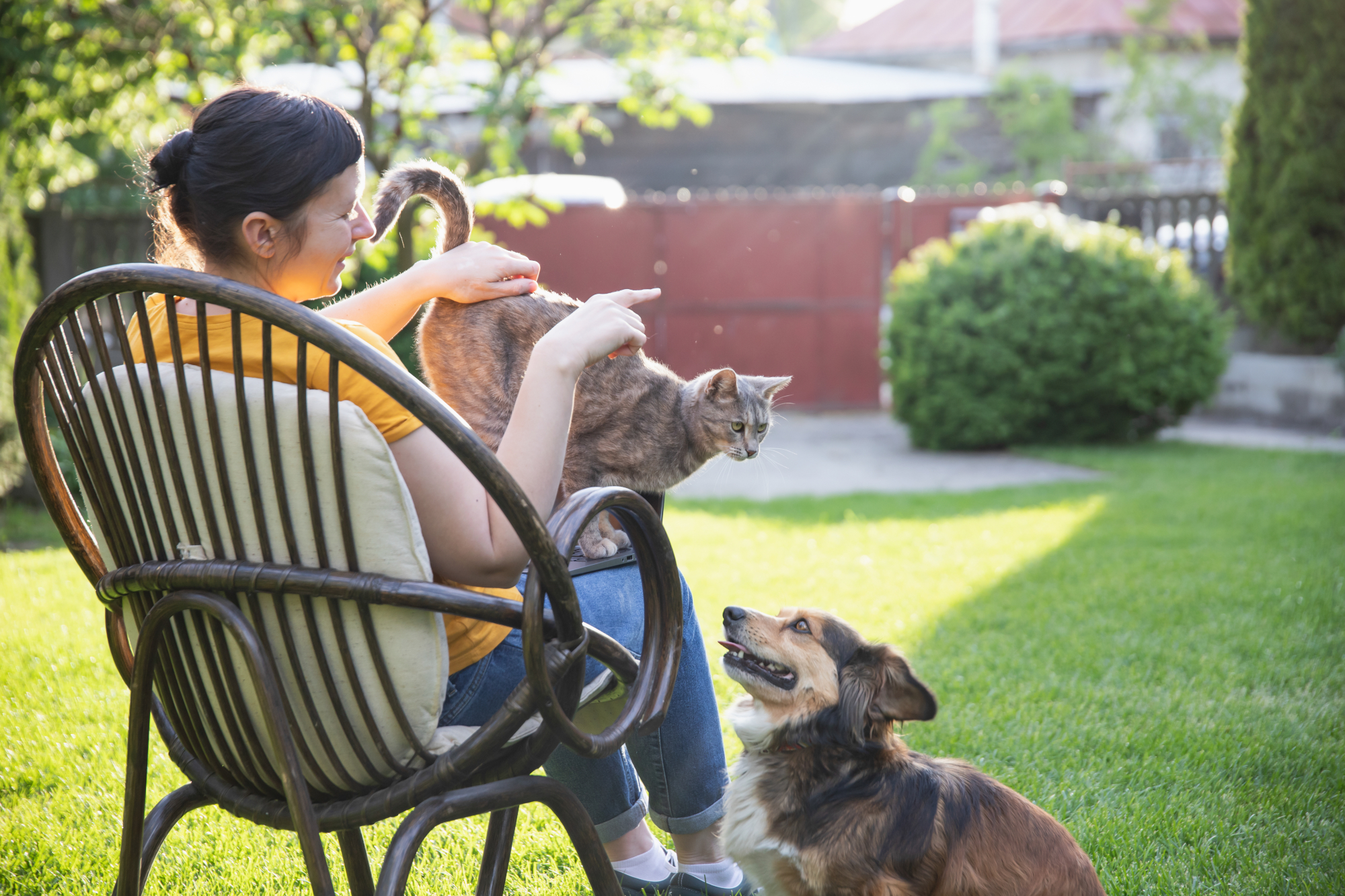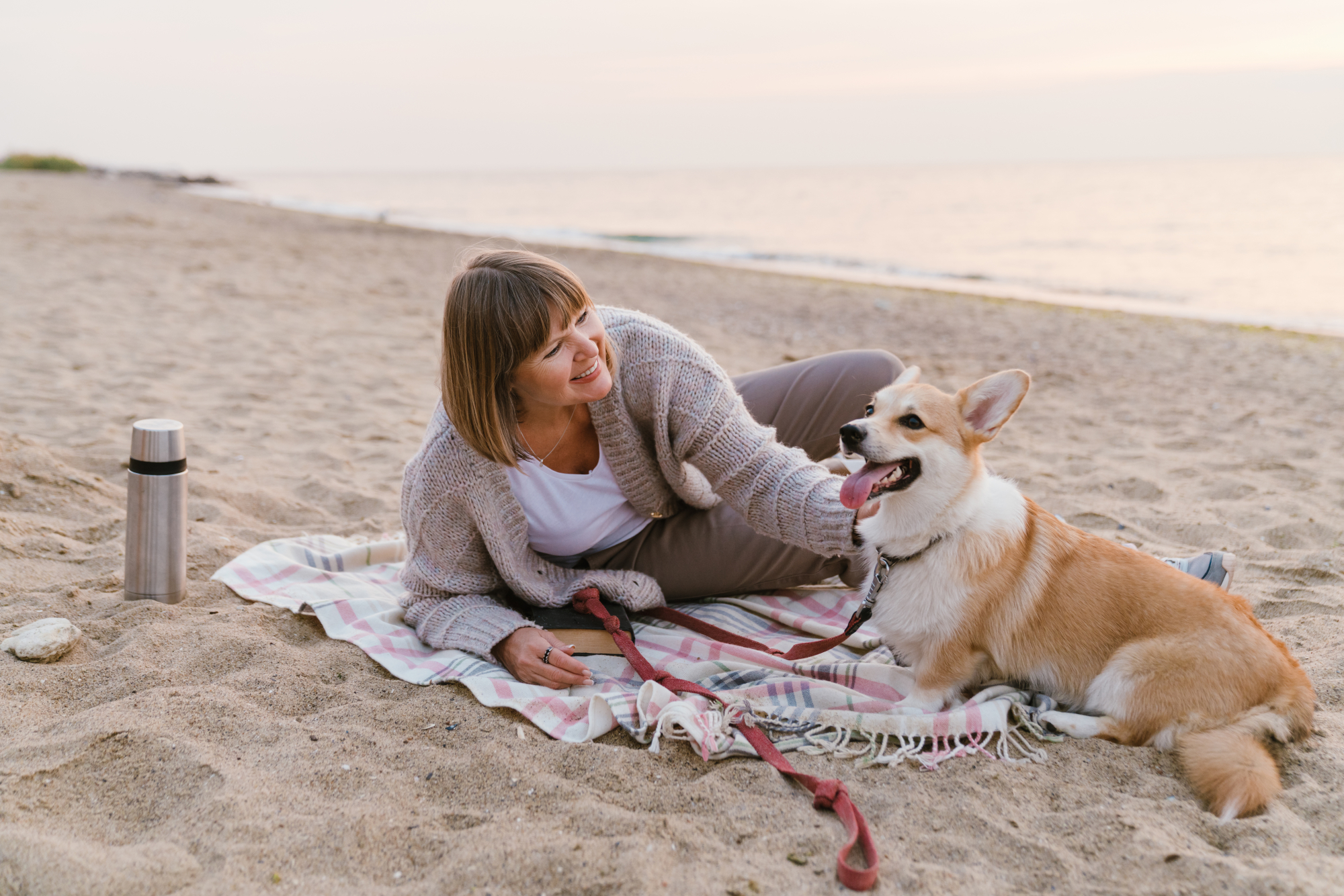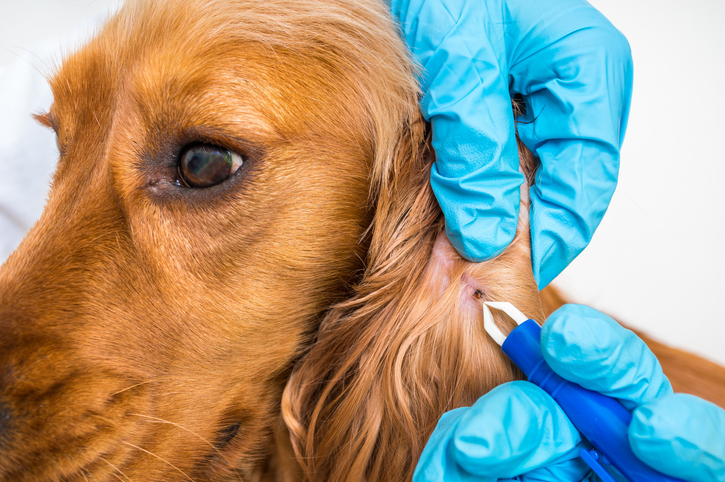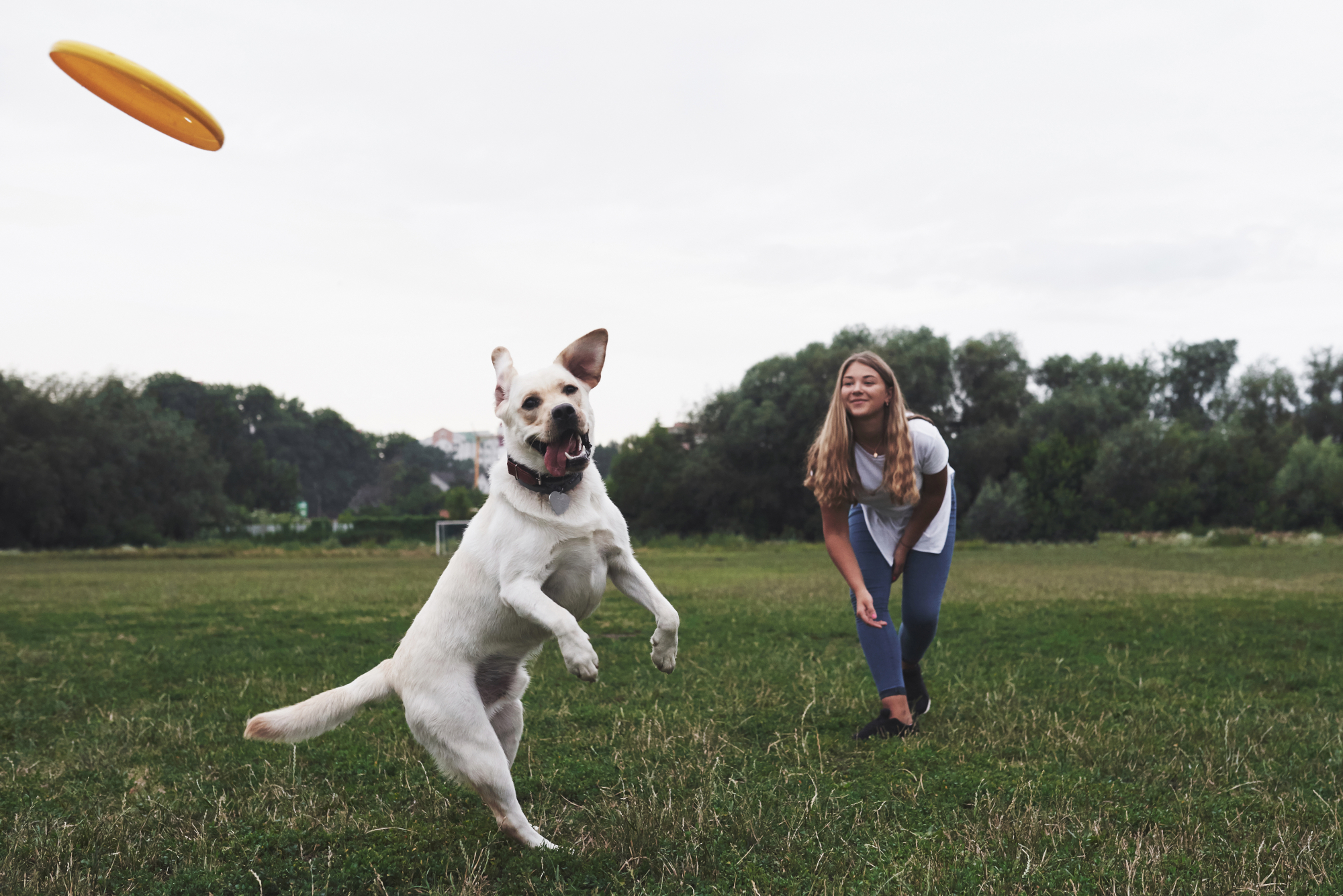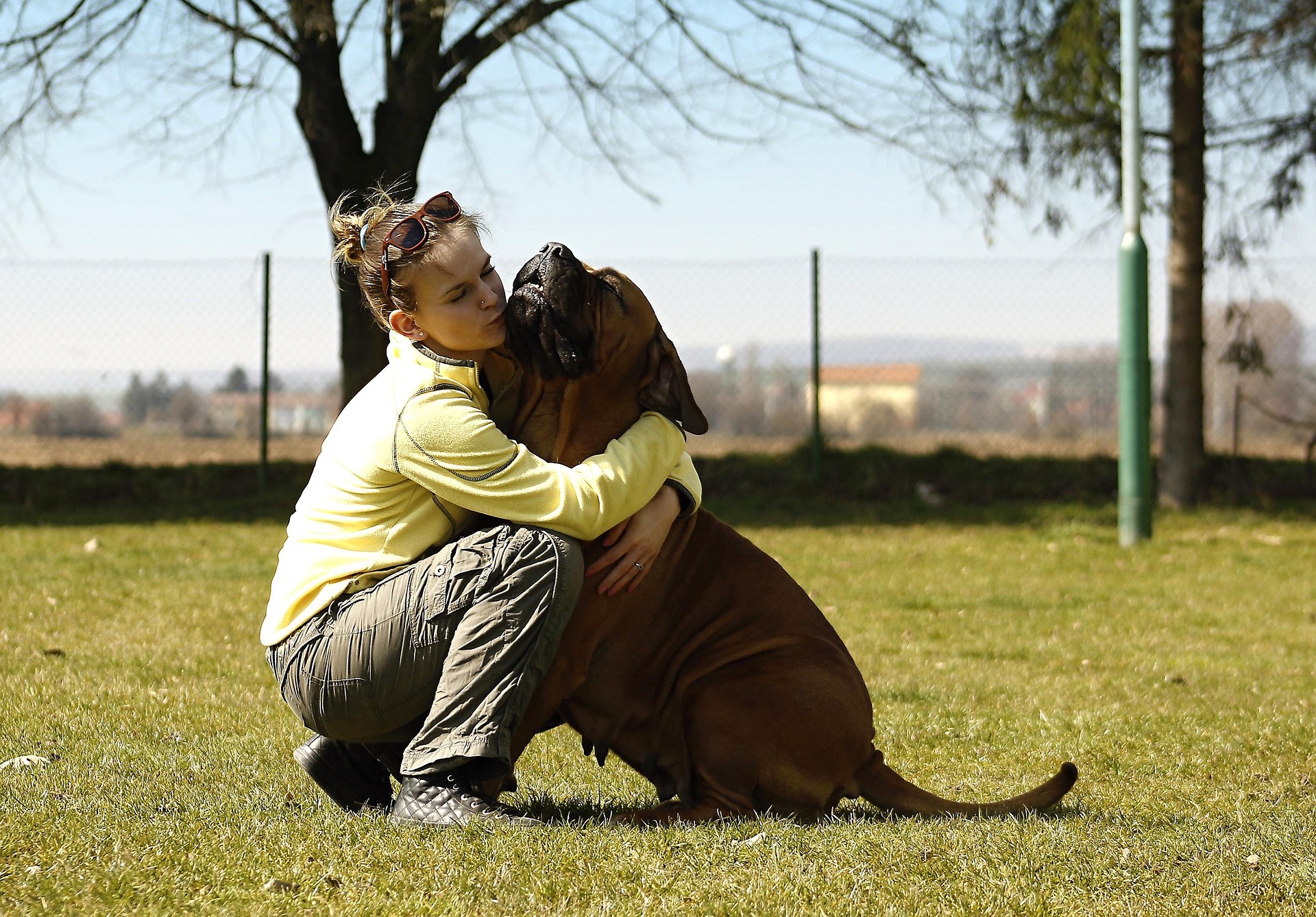Summer is a fantastic time of year for pet owners! Dogs get to head outside for long walks in the sunshine, and cats get to watch the birds and other wildlife spring into action. Of course, while you enjoy the summertime with your four-legged friend, you’ll need to ensure you’re aware of a few of the season’s top hazards and take the appropriate steps to ensure a safe, healthy, and happy summer for everyone. In this guide, we’ll explain 8 of the top summer hazards for cat and dog owners to be aware of.
Hazard 1: Heatstroke
One of the top concerns for pet owners in the summertime is heatstroke. Heatstroke is a condition caused by a pet’s body temperature getting too high. It can affect both cats and dogs since neither of these pets have the ability to sweat. This means they can’t cool themselves down as effectively as we can. Symptoms of heatstroke may include:
- Rapid heart rate
- Excessive panting
- Drooling
- Listlessness/confusion
- Lethargy
- Bright red gums
- Vomiting
- Diarrhea
Fortunately, a little preventative work can dramatically reduce your pet’s risk of developing heatstroke. For dogs, we suggest minimizing the time you leave them outside in hot weather. Make sure they always have access to cool water and a shady place to rest. Also, avoid walking your dog on hot pavement and sidewalks, opting for trails or walks during cooler parts of the day.
Preventing heatstroke is easier for cats since we usually have more control of our home’s indoor temperature. All the same, make sure they have unlimited access to cool, clean water, shady areas to relax, and access to an air-conditioned room, if possible.
Whether you have a cat or a dog, never leave them in a car during hot weather, even if the windows are down. Heatstroke can develop quickly, and even mild heat can turn your vehicle into a furnace before long.
Hazard 2: Dehydration
Dehydration goes hand-in-hand with heatstroke as one of the top summer concerns for pet owners. If you love spending summer days going on hikes and long adventures with your dog, for example, make sure to bring plenty of water and a collapsible dish, ensuring you offer your pup some water at least once an hour (or more on particularly hot days). The same goes for cats—keep an eye on their dish throughout the day to ensure they always have access to water. This helps keep their hydration up and reduces the risk of heatstroke.
Not sure if your pet is hydrating too much? Be sure to check out our blog post Hydration for Pets: How Much is Enough?
Hazard 3: Lawn and Garden Hazards
Many people love tending to their lawns and gardens in the summer, so it’s essential to practice pet safety awareness while you do it. Many insecticides, herbicides, and pesticides are hazardous to your pets and can cause serious health issues if ingested. To avoid this, we suggest using natural products in your garden, not allowing your dog to walk on lawns that have recently been treated with chemicals, and rinsing off your pup’s paws as a precaution after taking a walk.
Assuming your cat stays indoors, garden hazards are less of a concern. However, make sure you keep certain flowers and plants out of the home, as many are toxic.
Hazard 4: Outdoor Hazards
There are other outdoor pet hazards in summertime to be aware of, including:
- Certain types of pond algae – can cause illness if ingested
- Citronella candles – used to deter mosquitoes
- Compost piles and fertilizer – can introduce bacteria to your dog
- Swimming pool chemicals – can make pets sick if ingested
As a rule of thumb, exercise caution around any unknown chemical, plant, or water source, and always err on the side of caution. If you’re not certain whether something is safe for your cat or dog to smell, eat, or drink, it’s best to keep them away from it.
Hazard 5: Fireworks
Fireworks are a common sight throughout the summer holidays. As you know, many cats and dogs find the bright lights and loud explosions of fireworks very distressing, causing them to feel anxiety and fear. We suggest doing research so you know if and when fireworks displays are planned in your area, giving you the chance to set up a calm, quiet place for your pet to relax in until the chaos is over. If your pet gets anxious during fireworks, you are urged to speak with your veterinarians for antianxiety options including medication, if deemed necessary.
Hazard 6: Fleas and Ticks
Flea and tick populations increase dramatically over the summer, posing a major concern for pet owners. Although your dog should already be immune from flea and tick infestation thanks to modern preventive care (talk to your veterinarian if you’re not already administering them), it’s also worth thinking about your indoor cat. Some indoor cats can become infested with ticks or fleas that catch a ride into the home via other pets or even people. Periodically check your pets for signs of these parasites, and talk to your vet about strategies to prevent them.
Hazard 7: Certain Insects and Spiders
Fleas and ticks aren’t the only bugs we see more of in summer. Other insects and some spiders can be a hazard to curious pets. Here in BC, you should be on the lookout for a few particular insects and arachnids:
- Ants (especially red fire ants)
- Black widow spiders
- Brown recluse spiders
- Mosquitoes
- Yellowjacket wasps
- Hornets
These can all cause harm to your pet via their stings or bites. Keep an eye on your pets throughout the summer, and keep them away from any unknown spiders and insects.
Hazard 8: Picnic Foods
There’s no better time than summer for a picnic with your pets! Of course, it’s vital that you keep your furry friends away from any human food, as many of our favourite delicacies can be harmful and hazardous to them. Here are a few common picnic foods that you should keep far away from your pets:
- Grapes and raisins
- Chocolate
- Cooked bones (e.g. chicken wings, rib bones, etc.)
- Onions, garlic, shallots, etc.
- Corn cobs
These foods can have harmful effects on your pet if they’re eaten. Avoid a stressful summertime vet visit by keeping all human food and picnic scraps away from your pets!
Despite this list of hazards, it’s quite simple to have a safe, happy summer with your pet. Pay attention to the basics like heat safety and proper hydration, keep pets away from harsh chemicals, unknown insects, and dubious water sources, and you’re bound to have a safe, enjoyable summer with your furry friend.
Creative Commons Attribution: Permission is granted to repost this article in its entirety with credit to Hastings Veterinary Hospital and a clickable link back to this page.

